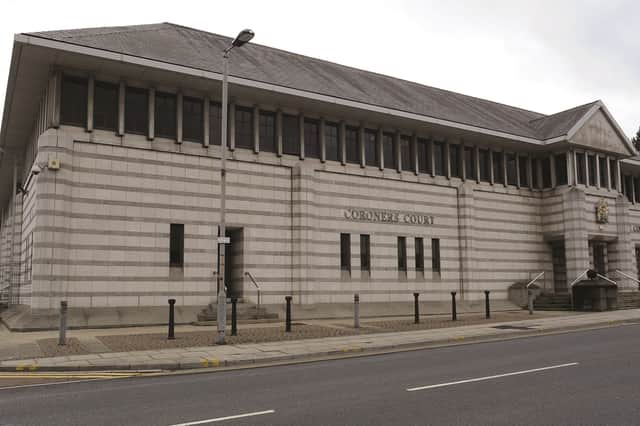Care problems had no part in Denaby man’s railway line death


Stephen Winstanley (37), of Rearsby Walk in Denaby, was found dead near a level crossing by a track maintenance worker in April.
Doncaster Coroner’s Court heard last week that his medical paperwork was not up to date.
Advertisement
Hide AdAdvertisement
Hide AdBut a health service supervisor insisted that this did not mean Mr Winstanley missed out on care.
Frank Bow came across Mr Winstanley at around 8am on April 23, shortly after a freight train had passed along the same section of track.
PC Matthew Kania, of British Transport Police, took statements from the freight train driver, who said he had not seen Mr Winstanley at all.
CCTV footage from onboard the train was of “poor quality” and showed little in the dark, the officer explained.
Advertisement
Hide AdAdvertisement
Hide AdThe Assistant Doncaster Coroner, Mr Andrew Beresford, asked: “Is it reasonable to assume that it was the freight train involved in this incident?”
PC Kania replied: “Yes, that is the best evidence.”
The court heard that Mr Winstanley had suffered paranoid psychosis, depression and heroin dependency for several years.
He told a psychiatrist that he had used heroin from age 17 to 24, when he went to prison and received detox treatment.
His heroin use seemed to come about because of boredom and lack of direction, Mr Winstanley had told the psychiatrist, the inquest heard.
Advertisement
Hide AdAdvertisement
Hide AdMr Winstanley’s records showed periodic improvements in his mood, though he stayed on antidepressants and heroin replacements.
Pathologist Dr Laszlo Karsai gave the cause of Mr Winstanley’s death as “severe traumatic injury, incompatible with life” due to a “rail incident”.
Toxicologist Dr Stephen Morley said Mr Winstanley’s blood and urine contained alcohol and metabolites of heroin and antidepressants.
After Mr Winstanley’s death Louise Braisby, of RDaSH ASPIRE Drug and Alcohol Service, reviewed his care.
Advertisement
Hide AdAdvertisement
Hide AdMs Braisby said the deceased “engaged extremely well” with staff and “had a good relationship with his key worker”.
She identified three issues but insisted these did not contribute to his death.
She admitted that Mr Winstanley “could have been given more direction” in life.
Child safeguarding and personal risk assessments were overdue, but Ms Braisby said there had been “no significant changes” to record.
Advertisement
Hide AdAdvertisement
Hide AdShe added: “Just because a risk assessment hasn’t been updated, doesn’t mean it hasn’t been done on an informal basis.
“We feel it wouldn’t have had any impact on the outcome.”
The court also heard that the ASPIRE service made no referrals to mental health services, despite Mr Winstanley’s recurrent low moods.
Ms Brasiby said: “He had got the idea that he was in good control of his mental health, so no referral was made.”
Mr Beresford asked Ms Braisby: “Do you feel any failings played a part in Mr Winstanley’s Death?”
Ms Braisby replied: “No.”
Advertisement
Hide AdAdvertisement
Hide AdThe supervisor said she had made three suggestions to ASPIRE colleagues — set measurable goals for patients, keep risk assessments up to date and attend workshops on depression.
“There was a lack of understanding, with some key workers, in regards to depression,” she admitted.
Mr Beresford adjourned the inquest until a date to be confirmed, so that further medical evidence could be heard.